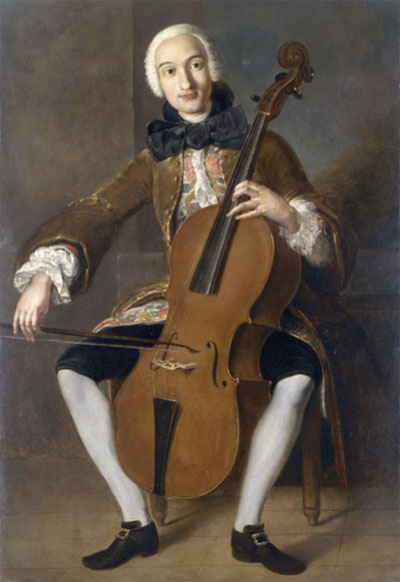At first glance a chair maker, a musician, and a dancing master make a very strange trio. The June 1790 judgment papers for Capus vs. Kullin, found in the Richmond (City) Hustings Court records (barcode 1007251), show how a concert brought the three together and eventually brought two of them to blows.
Mr. A. Kullin, musician, wrote on 5 May 1790 from Fredericksburg, Virginia, to Mr. John Capus, a French dancing master in Richmond, Virginia, asking that he join him in a concert to take place in Fredericksburg a few days later. “The people here seem very fond of musick,” Kullin noted, also stating that “here is an excellent violoncello in Town, but no player.” This statement may indicate that Capus was a string player. In preparation for the concert, Kullin had Andrew McKim, a Richmond-based Windsor chair maker, make “2 musick Stands and 1 rail.” A receipt in the judgment papers indicates that Kullin paid McKim for his services.

Image in the public domain, taken from Wikimedia Commons. http://en.wikipedia.org/wiki/File:LBoccherini.jpg
Capus was not so fortunate, in spite of Kullin’s promise in the letter that “your expenses here as well as travelling shall be paid you immediately on your arrival, and whatever gratification you think proper to demand you shall have.”
What was promised and what occurred were two different matters. In his bill of expenses Capus wrote to Kullin, “The need for money obliges me to act toward you a little harshly, you know I am owed [an itemized list of expenses follows]…If you send me the money, our account will be resolved, and then I will return to you your book that I have and in case of default you will allow me to keep the book I have of you.” The court ordered Kullin to pay Capus.
The often-heard quote “Music has charms to soothe a savage breast” seems to have had little effect, as Kullin took out a subpoena against Capus for assault in the July 1790 Richmond (City) Hustings Court. An amicable settlement did not appear to be forthcoming. However, the case subsequently was dismissed, “for want of pros[ecution].” Perhaps Euterpe, the Greek muse of music, intervened between the two.
-Chris Kolbe, Archives Reference Coordinator
Note: The author is indebted to Ms. Ute Schecter for translating the bill of expenses from French into English.











